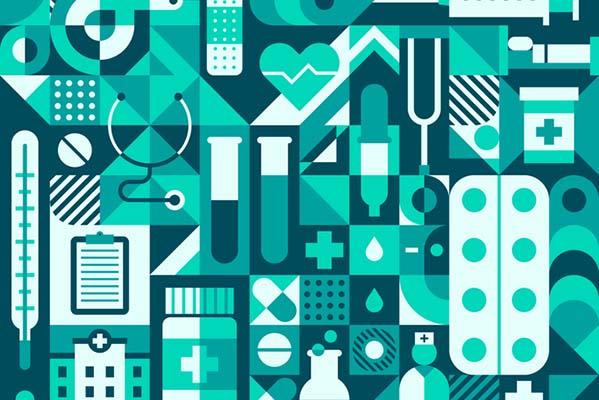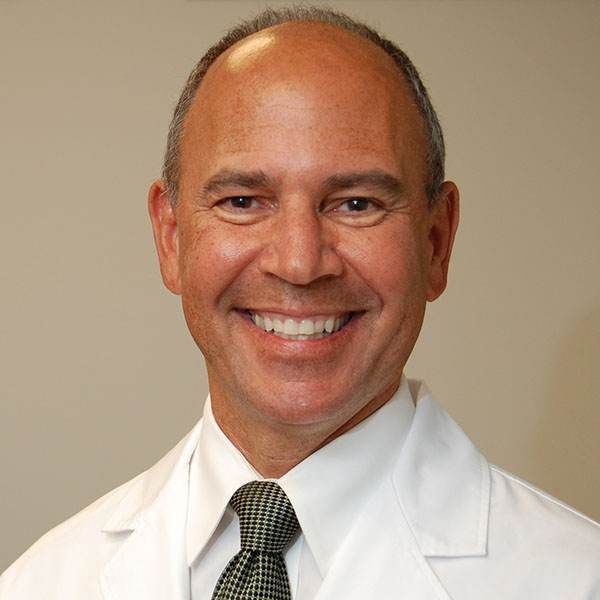
Are you getting health care you don’t need?

Ever wonder if every medical test or treatment you've taken was truly necessary? Or are you inclined to get every bit of health care you can? Maybe you feel good about getting the most out of your health insurance. Perhaps a neighborhood imaging center is advertising discounted screening tests, your employer offers health screens as a perk, or you're intrigued by ads touting supplements for a seemingly endless number of conditions.
But keep in mind: just because you could get a particular test or treatment or take a supplement doesn't mean you should. One study suggests that as much as 20% of all health care in the US is unneeded. In short: when it comes to health care, more is not always better.
Isn't it better to be proactive about your health?
We're all taught that knowledge is power. So it might seem reasonable to want to know as much as possible about how your body is working. And isn't it better to take action before there's a problem rather than waiting for one to develop? What's the harm of erring on the side of more rather than less?
The truth is that knowledge is not always power: if the information is irrelevant to your specific situation, redundant, or inaccurate, the knowledge gained through unnecessary health care can be unhelpful or even harmful. Unnecessary tests, treatments, and supplements come with risks, even when they seem harmless. And, of course, unnecessary care is not free — even if you're not paying a cent out of pocket, it drives up costs across health systems.
Screening tests, wellness strategies, and treatments to reconsider
Recommended screening tests, treatments, and supplements can be essential to good health. But when risks of harm outweigh benefits — or if proof of any benefit is lacking — think twice. Save your time, money, and effort for health care that is focused on the most important health threats and backed by evidence.
Cancer screening: When to stop?
Screening tests for some cancers are routinely recommended and can be lifesaving. But there's a reason they come with a recommended stop age. For instance, guidelines recommend that a person at average risk of colorectal cancer with previously normal colonoscopies stop having them once they turn 75. Similar limits apply to Pap smears (age 65) and mammograms (age 75). Studies suggest that beyond those ages, there is little benefit to continuing these screens.
Watch out for wellness marketing
Dietary supplements are a multibillion-dollar industry. And a whopping 70% or more of US adults take at least one, such as vitamin D, fish oil, or a multivitamin. People often consider them as insurance in case vital elements are missing from their diet, or they believe supplements can prevent dementia, heart disease, or another condition.
Yet little evidence supports a benefit of routine supplement use for everyone. While recent studies suggest a daily multivitamin might slow cognitive decline in older adults, there's no medical consensus that everyone should be taking a multivitamin. Fish oil (omega-3) supplements haven't proven to be as healthful as simply eating servings of fatty fish and other seafood low in toxic chemicals like mercury and PCBs. And the benefits of routinely taking vitamin D supplements remain unproven as well.
It's worth emphasizing that dietary supplements clearly provide significant benefit for some people, and may be recommended by your doctor accordingly. For example, if you have a vitamin or mineral deficiency or a condition like age-related macular degeneration, good evidence supports taking specific supplements.
Reconsider daily aspirin
Who should be taking low-dose aspirin regularly? Recommendations have changed in recent years, so this is worth revisiting with your health care team.
- Older recommendations favored daily low-dose aspirin to help prevent cardiovascular disease, including first instances of heart attack and stroke.
- New recommendations favor low-dose aspirin for people who've already experienced a heart attack, stroke, or other cardiovascular disease. Adults ages 40 to 59 who are at a high risk for these conditions and low risk for bleeding also may consider it.
Yet according to a recent study, nearly one-third of adults 60 and older without past cardiovascular disease take aspirin, despite evidence that it provides little benefit for those at average or low risk. Aspirin can cause stomach bleeding and raise risk for a certain type of stroke.
Weigh in on prostate cancer screening
Men hear about prostate cancer often. It's common, and the second leading cause of cancer deaths among men. But PSA blood tests and rectal exams to identify evidence of cancer in the prostate are no longer routinely recommended for men ages 55 to 69 by the United States Preventative Services Task Force.
The reason? Studies suggest that performing these tests does not reliably reduce suffering or prolong life. Nor do possible benefits offset downsides like false positives (test results that are abnormal despite the absence of cancer). That can lead to additional testing, some of which is invasive.
Current guidelines suggest making a shared decision with your doctor about whether to have PSA testing after reviewing the pros and cons. For men over age 70, no screening is recommended. Despite this, millions of men have PSA tests and rectal examinations routinely.
Not everyone needs heart tests
There are now more ways than ever to evaluate the health of your heart. But none are routinely recommended if you're at low risk and have no signs or symptoms of cardiovascular disease. That's right: in the absence of symptoms or a high risk of cardiovascular disease, it's generally safe to skip EKGs, stress tests, and other cardiac tests.
Yet many people have these tests as part of their routine care. Why is this a problem? Having these tests without a compelling reason comes with risks, especially false positive results that can lead to invasive testing and unneeded treatment.
Four more reasons to avoid unnecessary care
Besides the concerns mentioned already, there are other reasons to avoid unnecessary care, including:
- The discomfort or complications of testing. If you're needle-phobic, getting a blood test is a big deal. And while complications of noninvasive testing are rare (such as a skin infection from a blood test), they can occur.
- The anxiety associated with waiting to find out test results
- False reassurance that comes with false negatives (results that are normal or nearly so, suggesting no disease when disease is actually present)
- All treatments have side effects. Even minor reactions — like occasional nausea or constipation — seem unacceptable if there's no reason to expect benefit from treatment.
The bottom line
You may believe your doctor wants you to continue with your current schedule of tests and treatments, while they might think this is your preference! It's worth discussing if you haven't already, especially if you suspect you may be taking pills or getting tests you don't truly need.
If your doctor says you can safely skip certain tests, treatments, and supplements, it doesn't mean that he or she is neglecting your health or that you don't deserve great health care! It's likely that the balance of risks and benefits simply doesn't support doing these things.
Less unnecessary care could free up resources for those who need it most. And it could save you time, money, and unnecessary risks or side effects, thus improving your health. It's a good example of how less can truly be more.
About the Author

Robert H. Shmerling, MD, Senior Faculty Editor, Harvard Health Publishing; Editorial Advisory Board Member, Harvard Health Publishing
Dr. Robert H. Shmerling is the former clinical chief of the division of rheumatology at Beth Israel Deaconess Medical Center (BIDMC), and is a current member of the corresponding faculty in medicine at Harvard Medical School. … See Full Bio View all posts by Robert H. Shmerling, MD

Shining light on night blindness

Animals renowned for their outstanding night vision include owls, cats, tarsiers (a tiny primate in Southeast Asia) — and even the dung beetle.
But humans? Not so much.
Over time, many people suffer from night blindness, also known as nyctalopia. This condition makes seeing in dim or dark settings difficult because your eyes cannot adjust to changes in brightness or detect light.
What are the dangers for those experiencing night blindness?
Night blindness is especially problematic and dangerous when driving. Your eyes cannot adjust between darkness and the headlights of oncoming vehicles, other cars may appear out of focus, and your depth perception becomes impaired, which makes it difficult to judge distances.
Night blindness also may affect your sight at home by making it hard for your vision to quickly adjust to a dark room after turning off the lights. “This can cause people to bump into furniture or trip and suffer an injury,” says Dr. Isabel Deakins, an optometrist with Harvard-affiliated Massachusetts Eye and Ear.
What happens in the eye to create night blindness?
The ability to see in low-light conditions involves two structures in the eye: the retina and the iris.
The retina, located in the back of the eye, contains two types of light-detecting cells called cones and rods. The cones handle color vision and fine details while the rods manage vision in dim light.
The iris is the colored part of your eye. It contains muscles that widen or narrow the opening of your pupil to adjust how much light can enter your eyes.
If your irises don’t properly react, the pupils can dilate and let in too much light, which causes light sensitivity and makes it hard to see in bright light. Or your pupils may remain too small and not allow in enough light, making it tough to see in low light.
What causes night blindness?
Night blindness is not a disease but a symptom of other conditions. “It’s like having a bruise on your body. Something else causes it,” says Dr. Deakins.
Several conditions can cause night blindness. For instance, medications, such as antidepressants, antihistamines, and antipsychotics, can affect pupil size and how much light enters the eye.
Eye conditions that can cause night blindness include:
- glaucoma, a disease that damages the eye’s optic nerves and blood vessels
- cataracts, cloudy areas in the lens that distort or block the passage of light through the lens
- dry eye syndrome.
However, one issue that raises the risk of night blindness that you can’t control is age. “Our eyes react more slowly to light changes as we age, and vision naturally declines over time,” says Dr. Deakins. “The number of rods in our eyes diminish, pupils get smaller, and the muscles of the irises weaken.”
What helps if you have night blindness?
If you notice any signs of night blindness, avoid driving and get checked by an eye care specialist like an optometrist or ophthalmologist. An eye exam can determine if your eyeglass prescription needs to be updated.
“Often, a prescription change is enough to reduce glare when driving at night," says Dr. Deakins. “You may even need separate glasses with a stronger eye prescription that you wear only when driving at night.”
Adding an anti-reflective coating to your lens may help to cut down on the glare of the headlights of an oncoming car. However, skip the over-the-counter polarized driving glasses sold at many drug stores. "These may help cut down on glare, but they don't address the causes of night blindness," says Dr. Deakins.
An eye exam also will identify glaucoma or cataracts, which can be treated. Glaucoma treatments include eyedrops, laser treatment, or surgery. Cataracts are corrected with surgery to replace the clouded lens with an artificial one. Your eye care specialist can also help identify dry eye and recommend treatment.
Ask your primary care clinician or a pharmacist if any medications that you take may cause night blindness. If so, it may be possible to adjust the dose or switch to another drug.
Three more ways to make night driving safer
You also can take steps to make night driving safer. For example:
- Wash the lenses of your glasses regularly. And take them to an optician to buff out minor scratches.
- Keep both sides of your front and rear car windshields clean so that you can see as clearly as possible.
- Dim your dashboard lights, which cause glare, and use the night setting on your rearview mirror.
About the Author

Matthew Solan, Executive Editor, Harvard Men's Health Watch
Matthew Solan is the executive editor of Harvard Men’s Health Watch. He previously served as executive editor for UCLA Health’s Healthy Years and as a contributor to Duke Medicine’s Health News and Weill Cornell Medical College’s … See Full Bio View all posts by Matthew Solan
About the Reviewer

Howard E. LeWine, MD, Chief Medical Editor, Harvard Health Publishing; Editorial Advisory Board Member, Harvard Health Publishing
Dr. Howard LeWine is a practicing internist at Brigham and Women’s Hospital in Boston, Chief Medical Editor at Harvard Health Publishing, and editor in chief of Harvard Men’s Health Watch. See Full Bio View all posts by Howard E. LeWine, MD